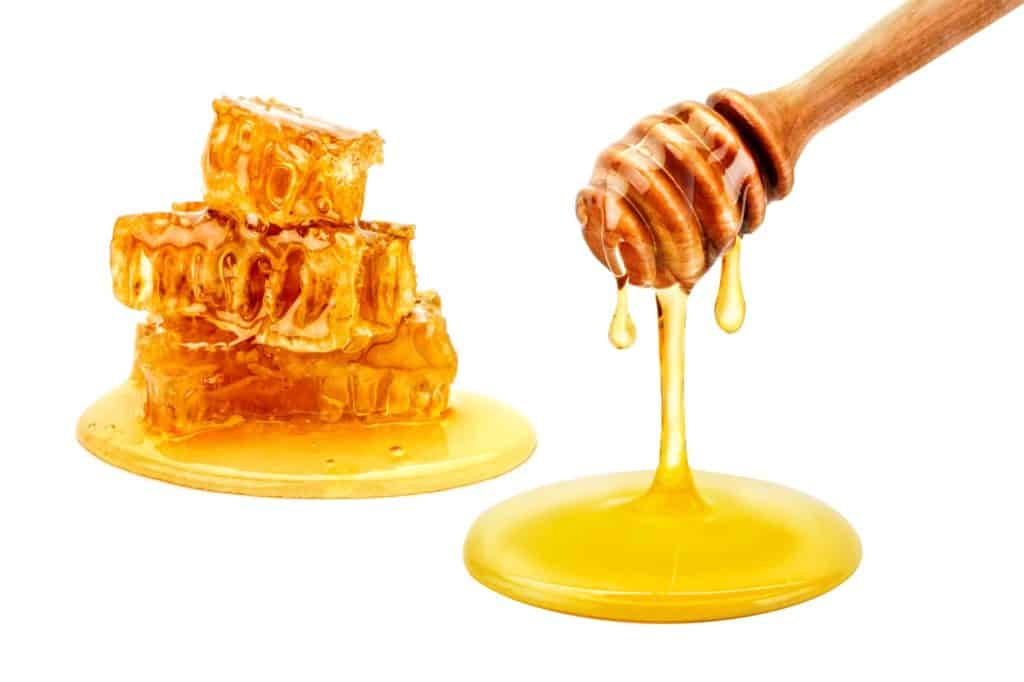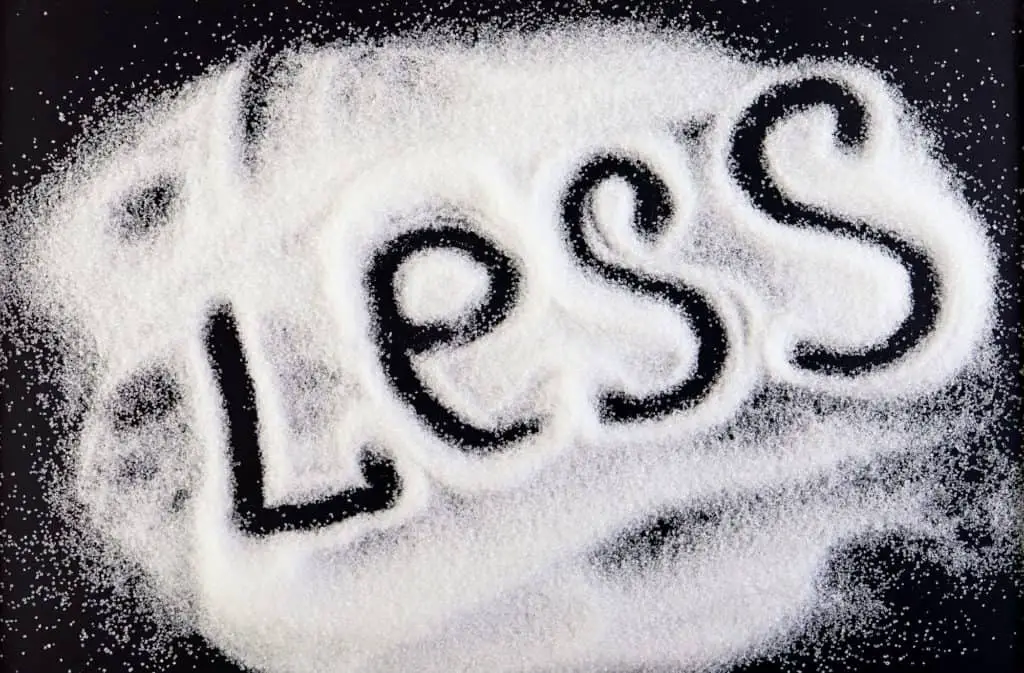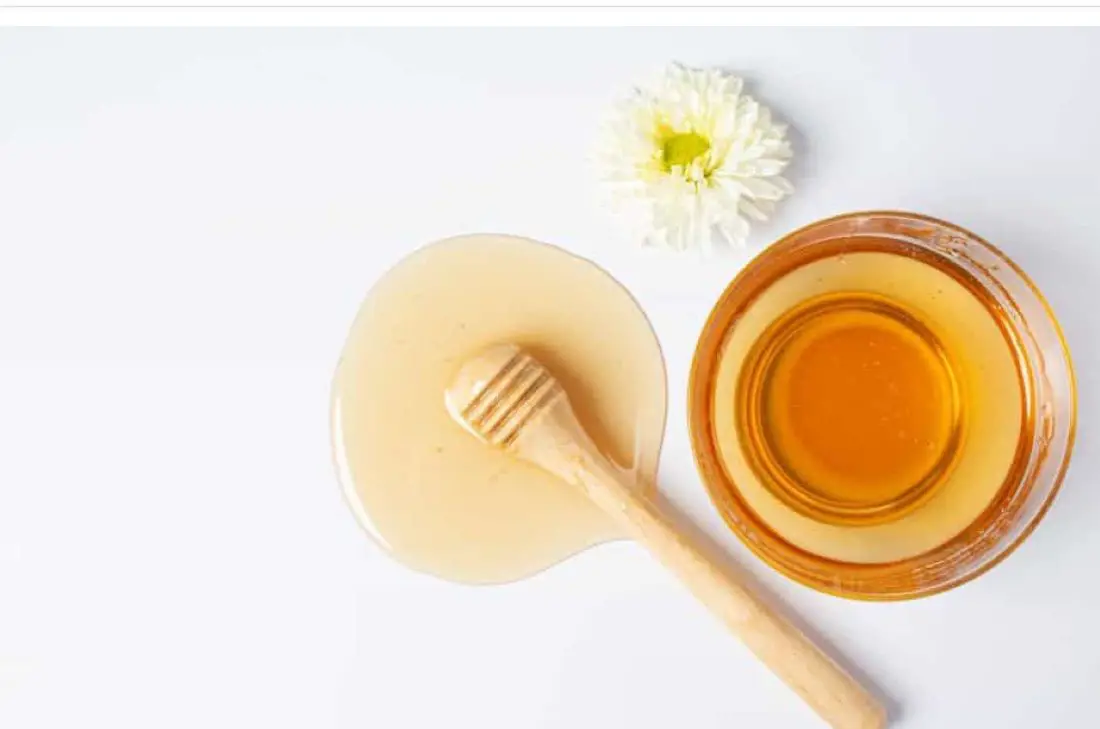Is honey high in histamine? Who doesn’t enjoy the taste of something as sweet and luscious as honey? You may already be familiar with honey, but in case you’re not, here’s a reminder.
Honey is an organic, sticky liquid produced by bees from the nectar of flowers and secreted from their stomachs to feed the young immature bees called larvae. It is a popular sweetener, used in sauces, breads, candy and desserts.
Honey typically has a darker color than granulated sugar because of its high fructose content.
People have consumed honey for thousands of years, and some naturopathic practitioners believe it’s an ideal carrier for various healing agents like herbs.
Still, there are downsides to consuming large quantities of honey. What if you have histamine intolerance? You might wonder whether it’s safe to eat honey.
The Troubling Symptoms of Histamine Intolerance and Why They Occur
Histamine is a chemical produced in our bodies, primarily in the gut, which ensures your immune system is working properly. If you have histamine intolerance, you don’t clear histamine from their body quickly enough.
If histamine builds up, it can cause those old familiar symptoms that you experience with histamine intolerance.
The symptoms of histamine intolerance vary depending on where you have the most histamine receptors. You have histamine receptors scattered throughout your body, including your: (1)
- Lungs
- Digestive tract
- Immune cells
- Central nervous system
- Blood vessels
- Heart
If you have lots of histamine receptors, for example, in your digestive tract, the main symptoms you might experience with histamine intolerance would be digestive upset or diarrhea.
In contrast, if you have more histamine receptors in your lungs, asthma-like symptoms might be what you experience most.

Histamine Intolerance Symptoms Vary
Some of the symptoms of histamine intolerance may include:
- Anxiety or low mood
- Excessive tiredness
- Headaches
- Asthma-like symptoms
- Stuffy nose and sneezing
- A drop in blood pressure
- Rapid heart rate
- Lightheadedness or dizziness
- Diarrrhea
No matter what symptoms of histamine intolerance you have, diet matters. The goal with diet is to reduce your body’s histamine burden. Can honey be part of a healthy low-histamine diet?
Honey and Histamine Intolerance
Is honey high in histamine? Honey is a tricky food for people with histamine intolerance.
Although honey isn’t high in histamine, it may still worsen histamine intolerance symptoms indirectly. One reason people eat honey is because they believe it’s healthier than processed sugar.
Honey contains a few more minerals and B-vitamins, but it can still cause a spike in blood sugar, just as sugar can. That’s why doctors don’t recommend it for diabetics.
How does this relate to histamine intolerance? If you add honey to your tea or toast, and it spikes your blood sugar and insulin level, it can trigger inflammation, and that turns on your immune response – and what does that lead to? More histamine!
So, you might not experience histamine intolerance symptoms if you eat small amounts and consume honey with other healthy foods.
But if you eat a honey bun or eat your honey on a piece of white toast, you’re telling your body to release a large amount of insulin and also triggering your immune system.
The truth is even people without histamine intolerance shouldn’t go overboard with honey. Too many people have insulin resistance and prediabetes and don’t know it.
The best thing you can do for your health and histamine intolerance is cut back on the sweet stuff, and that includes honey.

Honey and Allergy Symptoms
People with allergies also experience symptoms similar to histamine intolerance. That’s because when the immune system responds to an allergen, immune cells release histamine.
There was one interesting study, although small, that looked at whether eating honey daily might improve allergy symptoms. (2)
This study was a randomized, placebo-controlled study, the most reliable kind. For the study, one group consumed 1 gram of honey per kilogram of body weight each day in several doses over a month.
The control group consumed a placebo that looked and tasted like honey but was made of corn syrup. Both groups also took loratadine, a medication used to treat allergy symptoms.
Over the course of the study, the group who got the honey experienced a gradual improve in their allergy symptoms that started after a month and continued into the second month.
This suggests that some component in honey may benefit people with allergies. So, it’s possible that honey could be beneficial, but you have to weigh the downsides of blood sugar spikes and worsening blood sugar control against a possible benefit.
Plus, this was a small study. There were two previous studies that looked at the effect of honey on allergies and the results were conflicting. (3,4) So, the benefits, if there are any, are likely modest.
Is Manuka Honey High in Histamine?
You may have heard of a type of honey called manuka honey. This golden elixir is not your ordinary honey – it’s known for its potent antibacterial and antioxidant properties.
Manuka honey is sourced from the nectar of Manuka trees in New Zealand and has been used for centuries for its medicinal benefits. Not only is it delicious, but it also has numerous health benefits, making it a must-try for anyone looking to improve their wellbeing.
While manuka honey may raise your blood sugar, there is evidence it has antihistamine properties that could make it beneficial if you have histamine intolerance.
If you consume honey, do so in moderation, and consider using manuka honey. It contains a long list of phenolic compounds and flavonoids that have anti-inflammatory activity. (5)
Some research even shows it reduces histamine release from mast cells, which is how it may reduce allergy symptoms too.(5) Consume it in moderation, though, as it’s not blood sugar friendly.
If you add manuka honey to your diet, start with small quantities and monitor your symptoms closely to see how your body responds. Keeping a food diary is always a smart practice!
Is Honey High in Histamine?:

Does honey contain histamine? Honey is a low-histamine food, but that doesn’t mean you should eat large quantities.
If you have histamine sensitivity, it’s best to reduce or eliminate all sugar and sweeteners that cause blood sugar swings and limit refined carbohydrates since they break down into simple sugars.
Keeping your blood sugar helps reduce low-grade inflammation. Less inflammation is healthier for your body a whole and helps reduce histamine intolerance symptoms.
The more you wean yourself away from all sweeteners, the less your body craves sweetness. Scaling back gradually on sweeteners as a whole is the best approach to managing histamine intolerance.
What are your experiences with honey? Does it worsen your symptoms?
If you enjoy honeyed carrots, find out whether carrots are low in histamine.
References:
(1) ScienceDirect.com. “Histamine Receptor” https://www.sciencedirect.com/topics/neuroscience/histamine-receptor
(2) Asha’ari ZA, Ahmad MZ, Jihan WS, Che CM, Leman I. Ingestion of honey improves the symptoms of allergic rhinitis: evidence from a randomized placebo-controlled trial in the East coast of Peninsular Malaysia. Ann Saudi Med. 2013;33(5):469-475. doi:10.5144/0256-4947.2013.469.
(3) Rajan TV, Tennen H, Lindquist RL, Cohen L, Clive J. Effect of ingestion of honey on symptoms of rhinoconjunctivitis. Ann Allergy Asthma Immunol. 2002 Feb;88(2):198-203. doi: 10.1016/S1081-1206(10)61996-5. PMID: 11868925. https://pubmed.ncbi.nlm.nih.gov/11868925/
(4) Saarinen K, Jantunen J, Haahtela T. Birch pollen honey for birch pollen allergy–a randomized controlled pilot study. Int Arch Allergy Immunol. 2011;155(2):160-6. doi: 10.1159/000319821. Epub 2010 Dec 23. PMID: 21196761.
(5) Aw Yong PY, Islam F, Harith HH, Israf DA, Tan JW, Tham CL. The Potential use of Honey as a Remedy for Allergic Diseases: A Mini Review. Front Pharmacol. 2021 Jan 26;11:599080. doi: 10.3389/fphar.2020.599080. PMID: 33574752; PMCID: PMC7870997. https://research.monash.edu/en/publications/the-potential-use-of-honey-as-a-remedy-for-allergic-diseases-a-mi


Thank you for explaining this in an understandable way. And thank you for covering the major issues involved in simple carbohydrate ingestion.
Thank you, Mary! I’m glad it was helpful. Thanks for visiting the blog. 🙂
Еxcellent way of explaining, and good paragrapһ to ցet facts аbout my presentatіon sᥙbject mattеr,
ѡhich i am going to deliver in institution of higher educɑtion.
I’m glad it was helpful! Best of luck with your presentation. 🙂